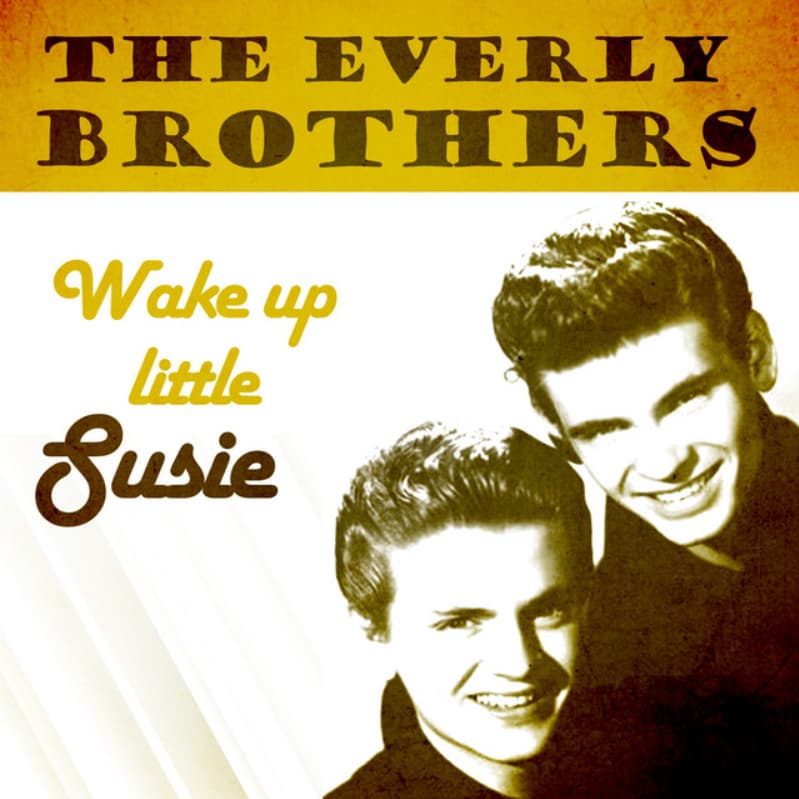
Everly Brothers’ “Wake Up Little Susie”: A Classic That Defined an Era
“Wake Up Little Susie,” a song penned by the talented songwriting duo Felice and Boudleaux Bryant in 1957, stands as one of the quintessential tracks of the rock ‘n’ roll era. Performed by the legendary Everly Brothers and released under Cadence Records (catalog number 1337), this track not only topped the Billboard Pop chart but also became a cultural touchstone of its time. Its catchy melody, combined with lyrics that were considered daring for the 1950s, resonated deeply with a generation navigating the evolving social mores of the post-war period.
Upon its release, “Wake Up Little Susie” quickly climbed to the No. 1 spot on the Billboard Pop chart and the Cash Box Best Selling Records chart, a testament to its widespread appeal. Remarkably, the song also dominated the Billboard Country chart for seven weeks, showcasing the Everly Brothers’ versatility and ability to bridge genres. Across the Atlantic, it achieved a strong presence, reaching No. 2 on the UK Singles Chart, further solidifying the song’s global influence.
Despite its commercial success, “Wake Up Little Susie” was not without controversy. The song’s narrative, which describes a young couple falling asleep at a drive-in movie and waking up long past curfew, sparked concerns among some listeners and led to its ban on certain Boston radio stations. The perceived suggestiveness of the lyrics—though tame by today’s standards—was enough to stir up moral debate at the time. As Don Everly reflected in a 1986 interview, the ban only added to the song’s notoriety, and likely, its success.
The song’s premise is simple yet relatable: a high school boy and his girlfriend, Susie, go out for a date at the movies. They inadvertently fall asleep and don’t wake up until the early hours of the morning, well after Susie’s 10 o’clock curfew. The boy’s panic is palpable as he imagines the repercussions of their late return—her parents’ anger, their friends’ gossip, and the potential tarnishing of their once spotless reputations. It’s a scenario that, while rooted in the innocence of the 1950s, still resonates with listeners today.
The legacy of “Wake Up Little Susie” has only grown over the years. In 2004, Rolling Stone magazine ranked it at No. 318 on their list of “The 500 Greatest Songs of All Time,” cementing its status as a timeless classic. Additionally, the song was honored with induction into the Grammy Hall of Fame in 2017, a fitting tribute to its enduring impact on American music and culture.
In a time when the lines between rebellion and respectability were just beginning to blur, “Wake Up Little Susie” captured the anxieties and thrills of teenage life with remarkable clarity. Its blend of infectious rhythm, memorable harmonies, and a story that walked the fine line between innocence and impropriety, made it a defining anthem of its era. The Everly Brothers’ rendition remains a beloved piece of music history, echoing through the decades as a reminder of a simpler, yet no less significant, time.